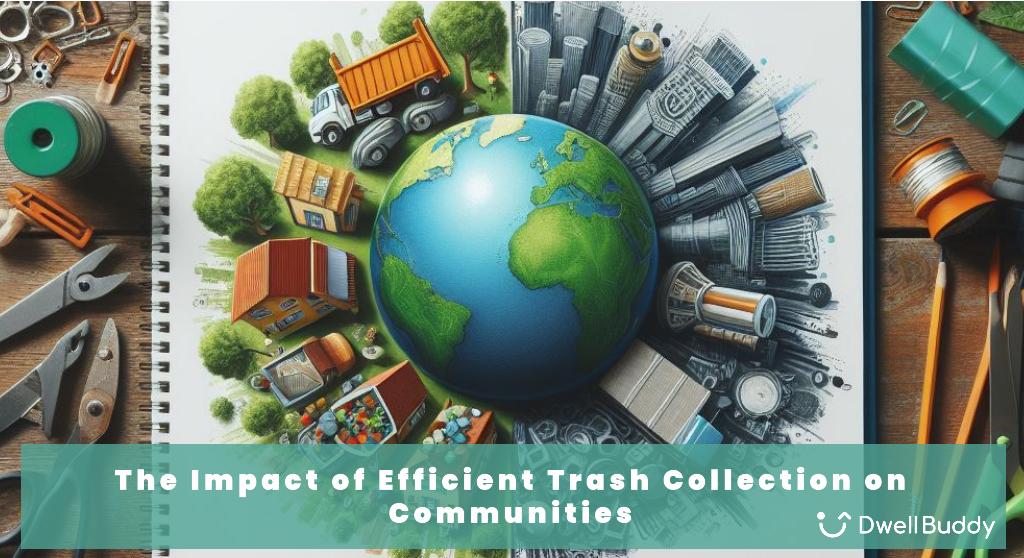
The Impact of Efficient Trash Collection on Communities
Efficient trash collection, often underestimated, significantly impacts our communities’ well-being. It goes beyond the basic act of waste removal and serves as the foundation for a sustainable future. Effective trash collection promotes public health, environmental preservation, and economic growth, laying the groundwork for thriving communities. This blog explores the enormous influence of efficient trash collection and how it contributes to a better, healthier future for everyone.
Maintaining a Healthy Environment
The fundamental role of efficient trash collection is critical in ensuring a clean and safe environment. Waste removal serves an important role in protecting public health:
- Reduced Risk of Disease: By limiting waste accumulation in public areas, efficient trash collection reduces the risk of attracting pests and disease vectors, ensuring inhabitants’ safety.
- Minimized Pollution: It dramatically minimizes pollution by prohibiting inappropriate disposal practices, which can contaminate the air we breathe, the water we drink, and the soil in which we grow our food.
Economic Benefits
Aside from environmental benefits, efficient trash collection has significant economic advantages:
- Reduced Landfill Costs: Communities can drastically cut landfill costs by reducing the amount of rubbish that ends up there.
- Revenue through Recycling: Robust recycling programs minimize waste while generating revenue by converting garbage into useful resources.
- Attracting Businesses: Clean and appealing towns attract visitors and businesses, stimulating economic growth and development.
Environmental Impact
Efficient trash collection is instrumental in safeguarding the environment:
- Curbed Greenhouse Gas Emissions: Proper waste disposal not only helps curb greenhouse gas emissions, a major contributor to climate change, but also plays a vital role in preserving natural resources.
- Resource Conservation: Recycling programs, for instance, contribute significantly to resource conservation by reducing the need to extract new raw materials. This practice minimizes environmental damage and promotes a more sustainable approach to waste management.
Social Considerations
Efficient trash collection also yields significant social benefits:
- Community Pride and Engagement: Clean and well-maintained communities foster a sense of pride and community engagement among residents. When residents see their neighbourhoods clean and well-kept, they are more likely to take pride in their community and actively participate in its upkeep.
- Improved Public Health: Proper waste management can contribute to improved public health outcomes by minimizing the spread of diseases. By reducing the presence of waste and potential breeding grounds for pests and pathogens, communities can help prevent the spread of illnesses and improve overall public health.
Addressing Challenges and Identifying Solutions
While the benefits are undeniable, implementing effective waste management practices can be challenging. Some common hurdles include:
- Limited Resources
- Inadequate Infrastructure
- Insufficient Public Awareness
However, several solutions exist:
- Invest in Modern Technologies: Investing in modern waste management technologies can enhance efficiency and effectiveness.
- Public Awareness Programs: Implementing educational and outreach programs is crucial for raising public awareness about the importance of proper waste disposal.
- Community Participation: Promoting community participation by encouraging residents to actively engage in waste reduction and recycling initiatives nurtures a sense of ownership and responsibility.
Conclusion
Discover how efficient trash collection impacts communities’ well-being, and promotes public health, environmental preservation, and economic growth for a sustainable future in this insightful blog.

